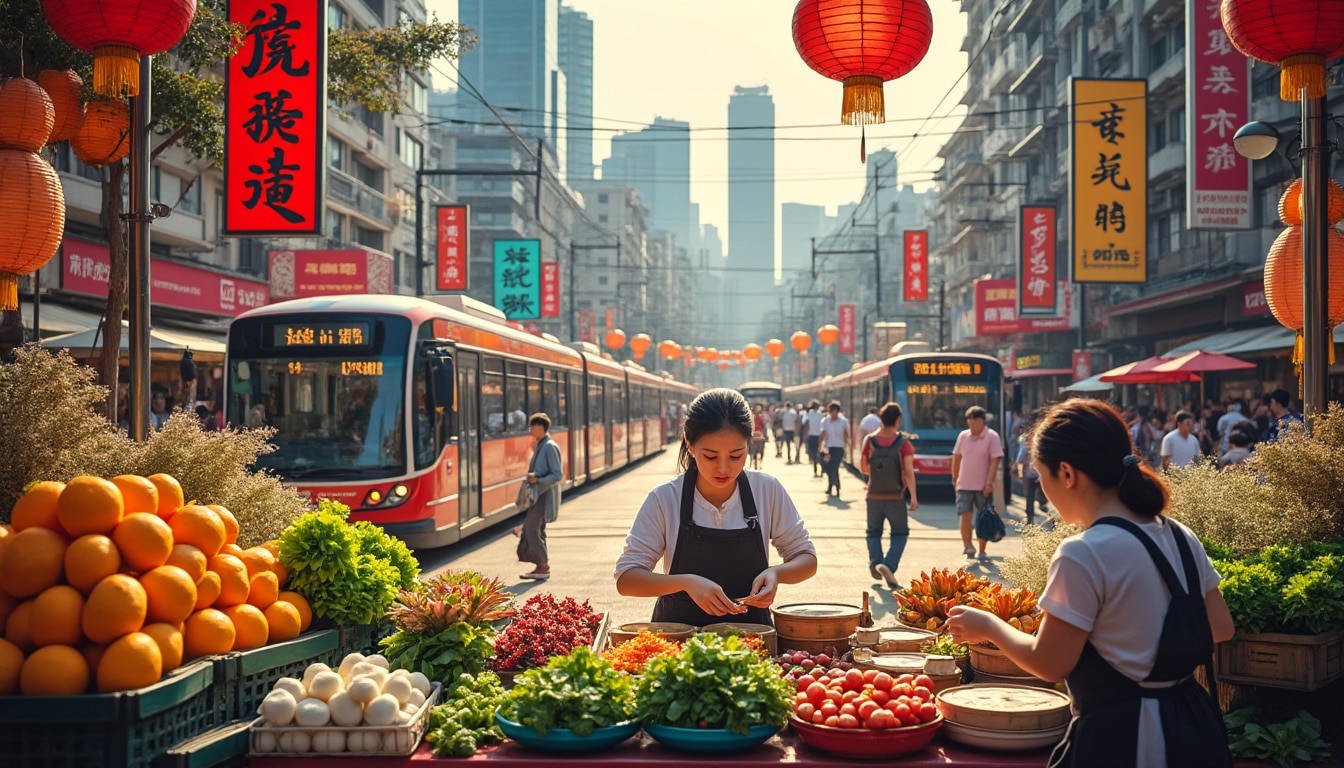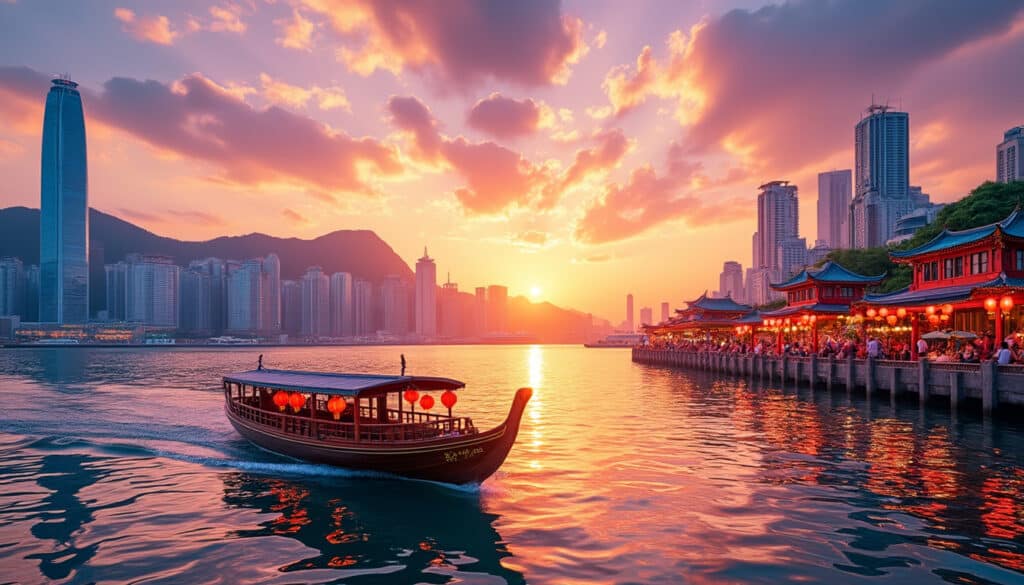Hong Kong, a dynamic metropolis where East meets West, offers a unique blend of tradition and modernity. For newcomers, its vibrant energy can be both exhilarating and overwhelming. This city, known for its iconic skyline, bustling streets, and diverse culture, presents an array of experiences that entice expatriates, tourists, and locals alike. From savoring dim sum at charming eateries to navigating the efficient MTR system, daily life in Hong Kong is an unparalleled adventure. Whether you’re immersing yourself in its rich history, enjoying the culinary delights, or simply soaking in the skyline views, the vibrant pulse of Hong Kong is ever captivating.
Understanding Hong Kong’s Climate and Weather
Life in Hong Kong is greatly shaped by its subtropical climate, characterized by four distinctive seasons, each with its own charm and challenges. Spring is warm and humid, typical of a subtropical region. This season runs from March to May, and with temperatures averaging between 18°C to 25°C, it provides a comfortable start to the year. However, unexpected rain showers are a norm, often accompanied by increasing humidity.
Summer takes over from June to August, with temperatures soaring up to 32°C and bringing in substantial rainfall, sometimes leading to typhoons. The city’s infrastructure is well-prepared for such natural occurrences, with an effective typhoon warning system ensuring safety for all. Buildings are constructed to withstand these climatic challenges, paying close attention to safety standards.
As autumn sets in during September and November, the city experiences some of its most pleasant weather. With lower humidity and temperatures ranging from 19°C to 28°C, it is a favorable period for outdoor activities and festivals. This season often heralds fewer rainy days and more sunny spells, encouraging residents and tourists alike to explore the scenic hiking trails and outdoor attractions.
Winter arrives in December and lasts until February, bringing cooler and drier weather. While snow is unheard of, the temperatures can drop to 10°C, especially in the New Territories. Despite being the coldest season, it is also the most stable, with plenty of clear and dry days.
The monsoon season is integral to Hong Kong’s climate, significantly influencing the weather patterns. The city braces itself for heavy rains and occasional tropical storms between May and October. However, with well-maintained drainage systems and public awareness, life goes on smoothly even during these adverse conditions.
Dealing with such weather requires a bit of planning. Owning a sturdy umbrella, weatherproof clothing, and being mindful of the weather forecasts are key survival tips here. Importantly, adapting to these seasonal changes is essential for making the most of what every month offers.

The dynamic climate of Hong Kong adds a layer of excitement to daily life, making each season a new experience. Knowing what to expect and how to adapt helps in enjoying everything that this vibrant city can bring to the table.
Cost of Living in Hong Kong: A Financial Overview
The cost of living in Hong Kong is a significant factor to consider for anyone planning to relocate. Known for being one of the most expensive cities globally, it’s vital to understand the financial landscape here. The most substantial expense in Hong Kong is undoubtedly accommodation. The limited land availability drives up the cost of real estate, making it a premium market.
Apartments tend to be smaller, and due to the demand surpassing supply, rental prices are high. Areas like Causeway Bay and Central are popular among expats, offering convenience but at a higher price point. A typical one-bedroom apartment in these regions can cost anywhere between HKD$20,000 to HKD$50,000 monthly, depending on the building’s age and amenities.
Here is a brief table summarizing estimated accommodation costs in major districts:
| Area | Type | Average Monthly Rent (HKD) |
|---|---|---|
| Central | 1-Bedroom | 40,000+ |
| Causeway Bay | Studio | 30,000+ |
| Kowloon | 2-Bedroom | 25,000+ |
| New Territories | Family Housing | 18,000+ |
While housing is a significant chunk of the budget, daily expenses like groceries, transportation, and entertainment can vary. Eating out at local eateries like Maxim’s or Cafe de Coral offers affordable dining experiences, whereas international dining can be on the pricier side.
Transportation is efficient and economical, with the MTR being a popular choice. The Octopus Card streamlines travel expenses, making it easier to navigate the transport network. A typical commute costs about HKD$10 to HKD$30, depending on the distance.
While the cost of living in Hong Kong may be on the higher side, with careful planning and smart choices, it is manageable. Understanding the financial demands helps in making informed decisions, ensuring a comfortable lifestyle in this dynamic city.
Language and Communication in Hong Kong
Linguistically diverse, Hong Kong is home to a rich tapestry of languages, mainly driven by its history and cosmopolitan nature. The official languages are Cantonese and English, which cater to the majority of the population’s needs in both social and business settings. While Cantonese dominates the local vernacular, English holds significant sway in legal, academic, and business contexts, ensuring seamless interactions, especially for expatriates and tourists.
Mandarin is becoming increasingly prevalent due to mainland influences, and many locals are bilingual or trilingual, comfortably switching between Cantonese, English, and Mandarin. Visitors might find Cantonese a challenging dialect to master due to its tonal nature, yet basic phrases and common expressions can go a long way in easing communication barriers.
In workplaces, particularly in international firms and service industries, English is predominantly used, making integration for non-Cantonese speakers much easier. Moreover, all official signage is presented bilingually, adding an ease of navigation throughout the city.
The education system further supports this linguistic diversity, with many International and local schools offering bilingual curriculums. As such, children grow up in a multilingual environment, well-equipped for the global stage.
For anyone keen on learning Cantonese, numerous language schools offer intensive courses. Engaging with locals and participating in social activities also aids in building language proficiency. Additionally, mobile apps and online resources can facilitate language learning, making it easier to grasp the essentials of daily communication.
The linguistic environment in Hong Kong embodies its unique blend of cultures, communicating a global perspective while respecting local traditions. Engaging with this linguistic richness opens the doors to deeper cultural exchanges and successful integration into the vibrant fabric of Hong Kong society.
Transportation in Hong Kong: Navigating the City
Getting around Hong Kong is remarkably straightforward, thanks to its efficient public transportation system. The backbone of this network is the MTR, offering fast and reliable transit across the city. The trains are clean, punctual, and well connected, ensuring ease of travel within major districts and beyond.
Alongside the MTR, the city boasts an extensive network of buses, minibusses, ferries, and the historic trams on Hong Kong Island. These transport modes provide varied options, catering to the diverse needs of both residents and tourists. Each offers a distinct experience, from the leisurely pace of the iconic Star Ferry crossing Victoria Harbour to the bustling energy of a double-decker bus weaving through city streets.
Here’s a glance at the essential transportation modes in Hong Kong:
- 🚆 MTR: Fast and extensive rail network connecting urban areas and suburbs.
- 🚌 Buses and Minibuses: Expansive routes catering to wide geographic coverage.
- 🛳️ Ferries: Linking key points with scenic harbor views, including Tsim Sha Tsui to Central.
- 🚋 Trams: Popular mode along the northern side of Hong Kong Island, offering a nostalgic ride.
The convenience of the Octopus Card streamlines all these modes, acting as a prepaid ticket allowing seamless transitions between services. This card is invaluable for efficiency and can even be used in convenience stores, providing a versatile payment solution beyond transport.
Taxis offer an alternative for more personalized travel, though they come at a premium compared to public transport. Ride-hailing services like HK Max and local taxi options provide efficient alternatives for those preferring door-to-door travel.
Understanding and navigating Hong Kong’s transport landscape is integral for maximizing the city’s offerings. Efficient transport ensures that you’re never far from Hong Kong’s myriad attractions and cultural gems, making exploration both easy and enjoyable.
Cultural Traditions and Festivals in Hong Kong
Hong Kong’s vibrant culture is a compelling amalgamation of ancient Chinese traditions and Western influences, celebrated through a wide array of festivals and practices. One of the most celebrated events is the Chinese New Year, a time of immense joy and cultural expression. The city bursts to life with parades, dragon dances, and mesmerizing fireworks, reflecting the colorful vibrancy that defines Hong Kong.
The Mid-Autumn Festival, another staple in the cultural calendar, is marked by the lighting of lanterns and savoring mooncakes, offering a time for familial reunion and reflection. Similarly, the Dragon Boat Festival showcases the competitive spirit and community bonding, with thrilling races capturing the city’s attention.
In addition to traditional celebrations, Hong Kong also embraces global festivities such as Christmas and Halloween with open arms. The city’s extravagant decorations and themed events during these periods speak to its eclectic cultural identity.
The tradition of feng shui is deeply embedded in Hong Kong’s architectural philosophy. It influences building designs, layouts, and even city planning, reflecting an intrinsic respect for balance and harmony with the natural environment. The omission of certain numbers in floor levels, notably the number four, underscores this cultural belief, as in Cantonese, it sounds similar to “death.”
Hong Kong’s rich cultural tapestry is embodied in everyday life, from culinary preferences at establishments like Guangdong Restaurant to architectural designs influenced by both heritage and modernity. The city is a living museum where history and modern life exist in harmony.
Being part of Hong Kong’s festive celebrations and respecting its cultural traditions offers a deeper understanding of the city’s soul. These practices, deeply rooted in history, continue to enrich the experience of living in this dynamic metropolis.
Frequently Asked Questions About Daily Life in Hong Kong
- What is the primary mode of transport in Hong Kong? The MTR is the primary mode, known for its efficiency, cleanliness, and punctuality, making it the backbone of Hong Kong’s public transportation.
- Is language a barrier in Hong Kong for expatriates? Not largely. While Cantonese is widely spoken, English is also an official language, prominently used in business, legal, and social settings.
- How expensive is living in Hong Kong? It is one of the world’s most expensive cities, especially for housing. However, costs can be managed by choosing affordable food and using public transport.
- What are some must-try foods in Hong Kong? Dim sum, roast goose, and wonton noodles are among the culinary highlights that offer an authentic taste of Hong Kong’s rich food heritage.
- How can one participate in cultural activities in Hong Kong? Engaging with local festivals, visiting cultural sites, and participating in community events are great ways to experience Hong Kong’s vibrant culture.
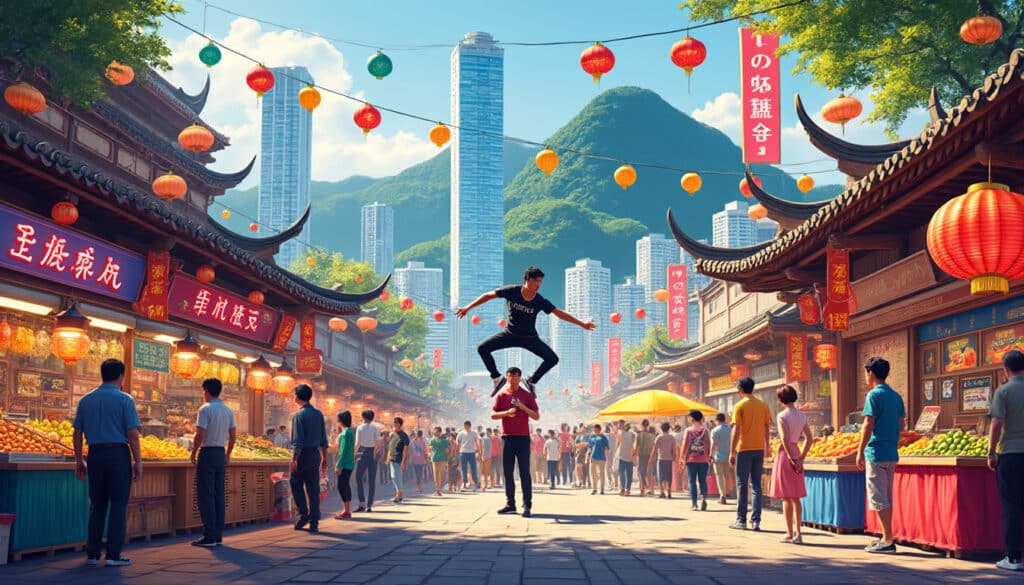
Fun Facts & Curiosities About Hong Kong
Hong Kong, often known as the “Pearl of the Orient,” offers a fascinating tapestry of culture, history, and modern innovation. From its towering skyscrapers to its unique traditions and vibrant economy, there are countless fun facts and curiosities that make…
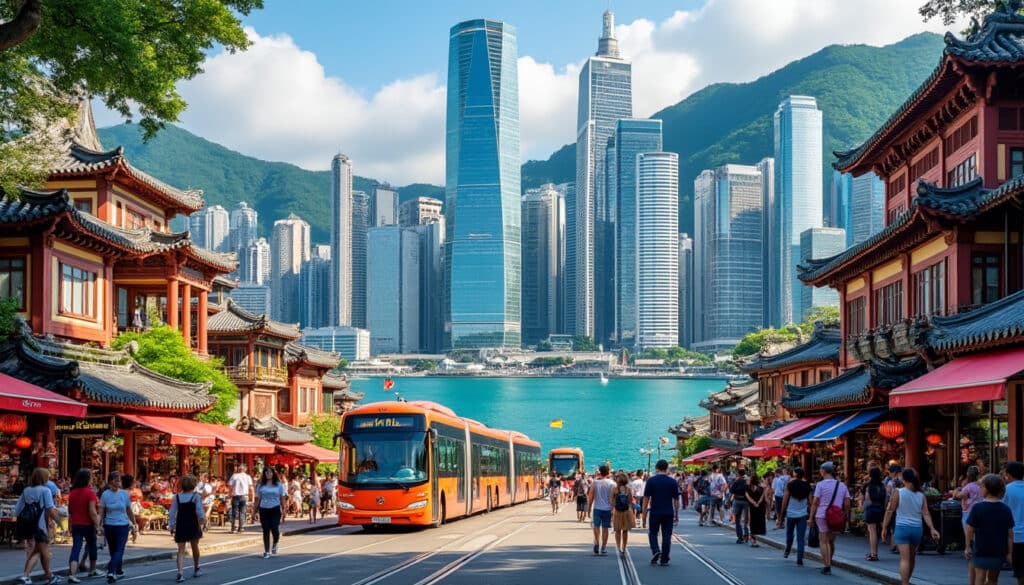
Architecture and urban features of Hong Kong
Hong Kong, a vibrant metropolis, is a city where the past and future coalesce in a stunning display of architectural marvels. With a skyline that is both iconic and evolving, Hong Kong boasts a unique blend of colonial-era buildings, traditional…
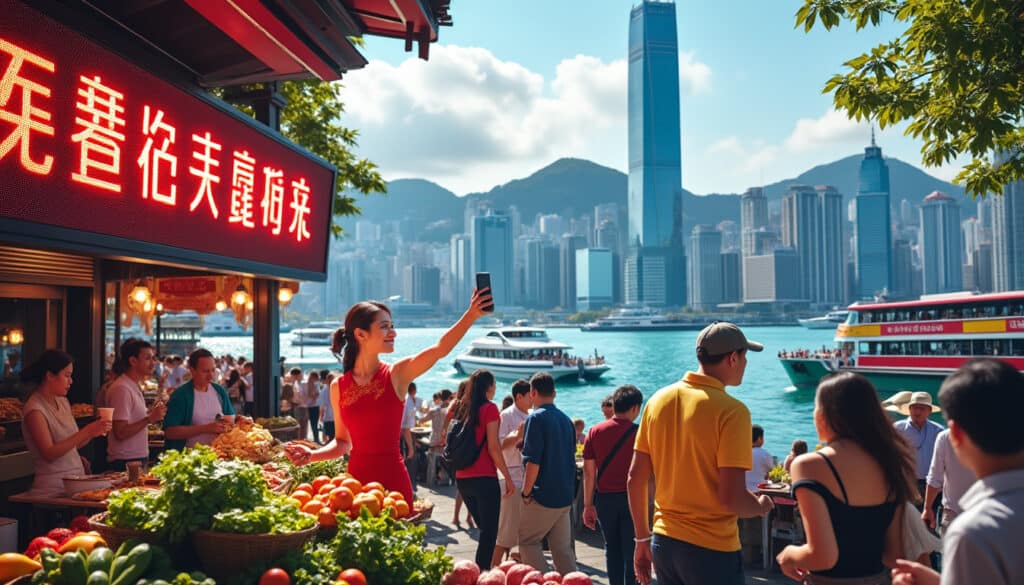
Demographics and geography of Hong Kong
The demographics and geography of Hong Kong reveal a complex tapestry of cultural heritage, population dynamics, and geographical diversity. Hong Kong, positioned in the Pearl River Delta, has evolved into a vibrant metropolis that amalgamates colonial influences with modern-day dynamism.…
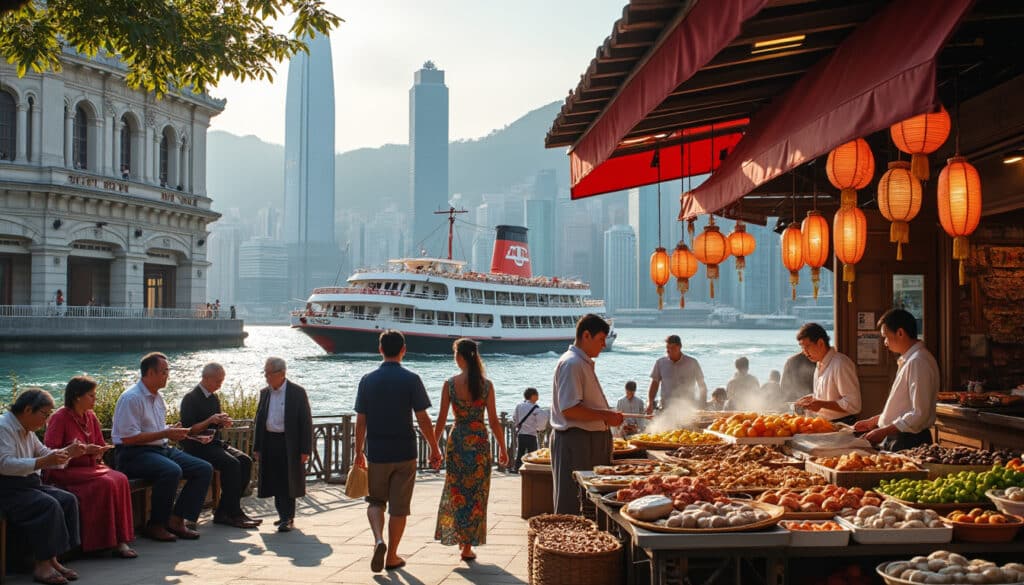
Hong Kong, a vibrant and bustling metropolis, stands as a testament to the region’s unique historical tapestry. Its evolution from a simple fishing village to a dynamic global city is a story of resilience and transformation. Understanding the history of…
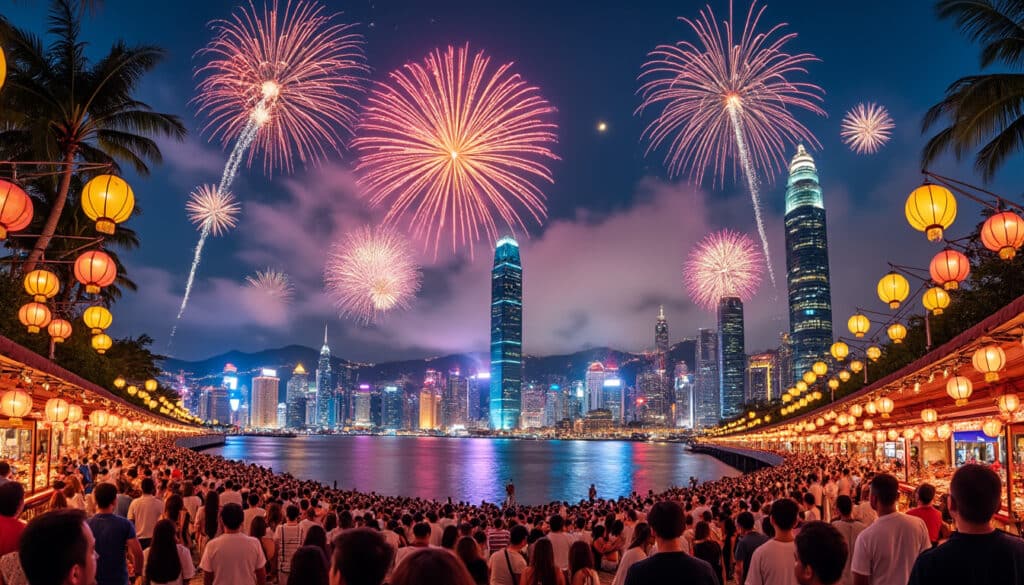
Holidays and celebrations in Hong Kong
Hong Kong, a vibrant city known for its skyline and bustling streets, is also a place where cultural traditions and modern celebrations intertwine beautifully. Here, traditions are honored with grand festivities that draw both locals and tourists alike, intertwining deep…
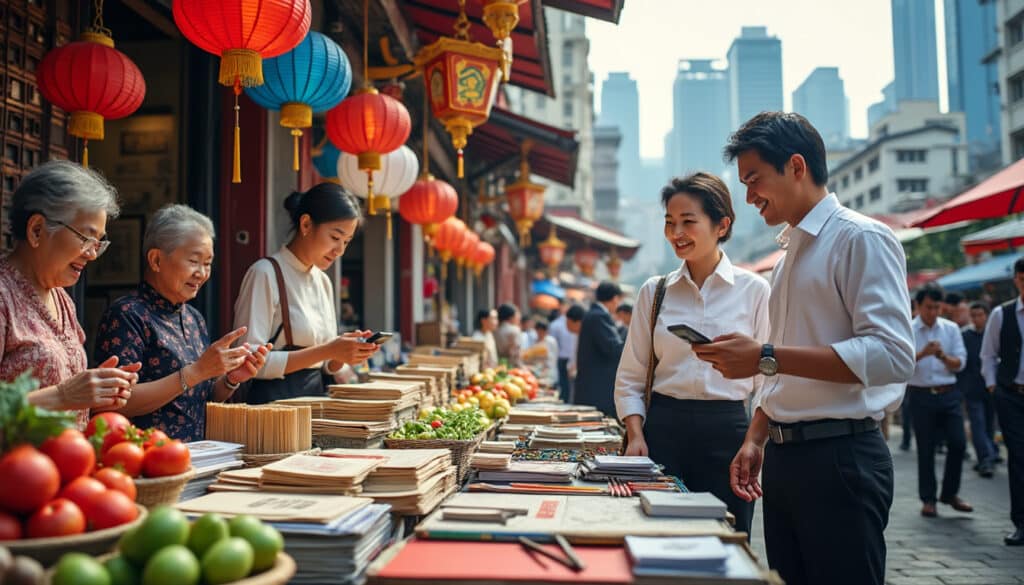
Language and spelling of Hong Kong
Hong Kong, a bustling metropolis where East meets West, boasts a rich tapestry of cultural heritage that is vividly reflected in its linguistic diversity. This vibrant city’s linguistic landscape is characterized by a unique blend of languages, primarily Cantonese, English,…
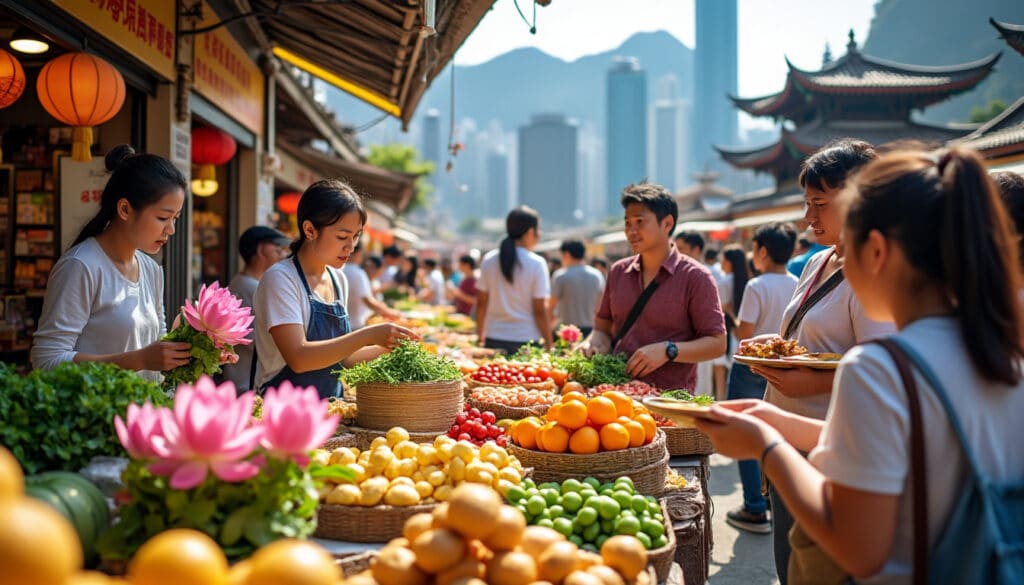
Local tips for tourists in Hong Kong
Discover the true essence of Hong Kong, a city where tradition meets modernity, through a local lens. This guide is designed to help tourists delve deeper into the vibrant culture, mouthwatering cuisine, and stunning natural landscapes of this dynamic metropolis.…
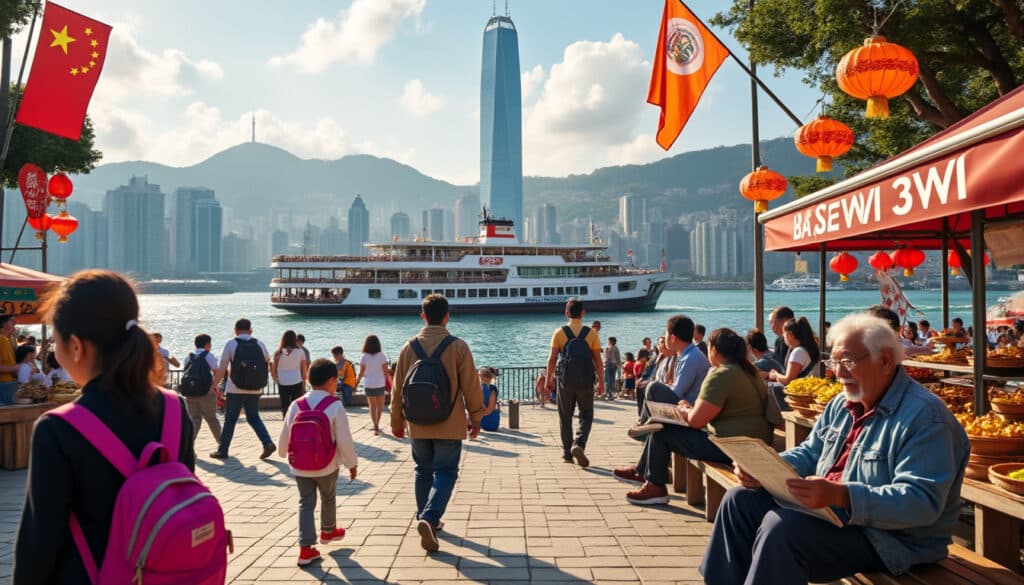
Names, flags, and identity of Hong Kong
Hong Kong, a city known for its vibrant urban life, diverse culture, and unique identity, stands as a testament to a rich blend of tradition and modernity. The names, flags, and symbols associated with Hong Kong reflect this distinctive character,…
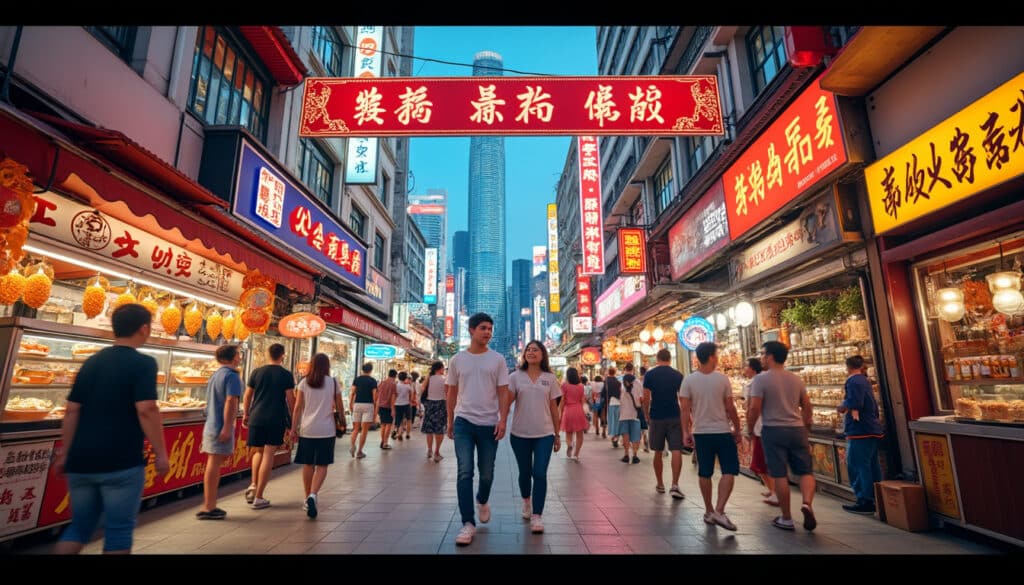
Reputation and identity of Hong Kong
Hong Kong, a city that gracefully dances between tradition and modernity, is well-acclaimed for its unique cultural identity and esteemed global reputation. As a major international financial hub, Hong Kong exudes a dynamic energy that few other cities can match.…
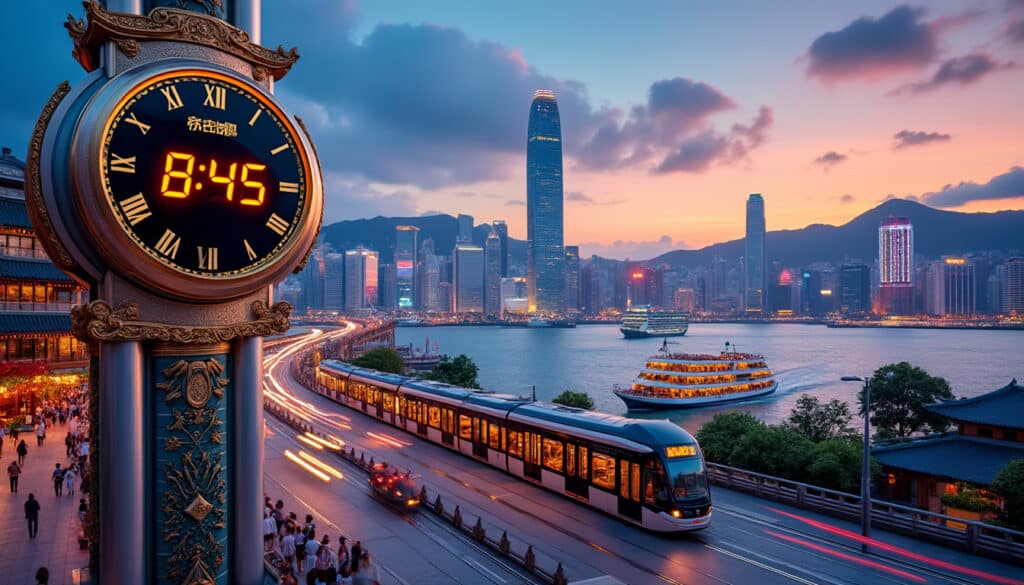
Time and time zone in Hong Kong
Hong Kong, with its vibrant cityscape and bustling lifestyle, operates within a unique time structure that is essential for both locals and travelers. Firmly set in the HKT or Hong Kong Time, the city adheres to UTC+8 throughout the year…
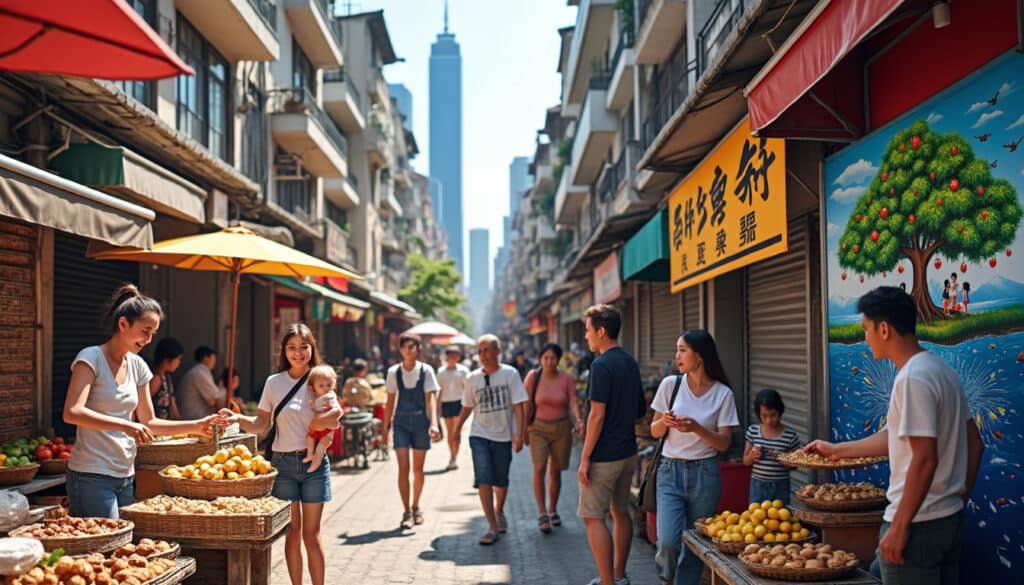
Unusual facts and social issues in Hong Kong
Hong Kong is a city that thrives on contrasts, presenting an intriguing mix of modern skyscrapers and rich traditions. Beneath its vibrant surface, however, are layers of unusual facts that offer a glimpse into the city’s complex identity. Alongside these…

What does Hong Kong look, smell, feel like?
Hong Kong stands as one of the most vibrant and multifaceted cities globally, known for its breathtaking skyline, the cacophony of its bustling streets, and the diverse aromas wafting through its alleys. A blend of East and West, tradition and…

